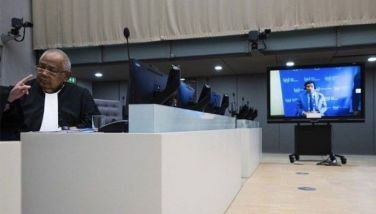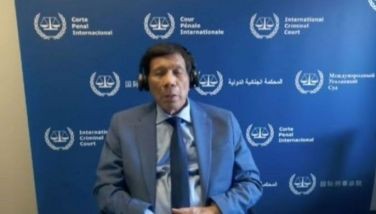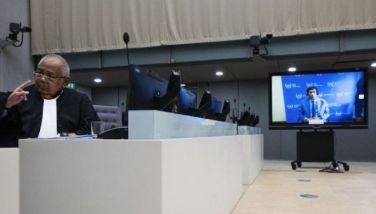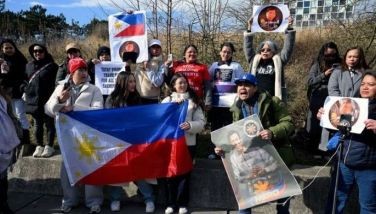With no law or resolution to assail, judicial remedy for ABS-CBN unclear — law professor
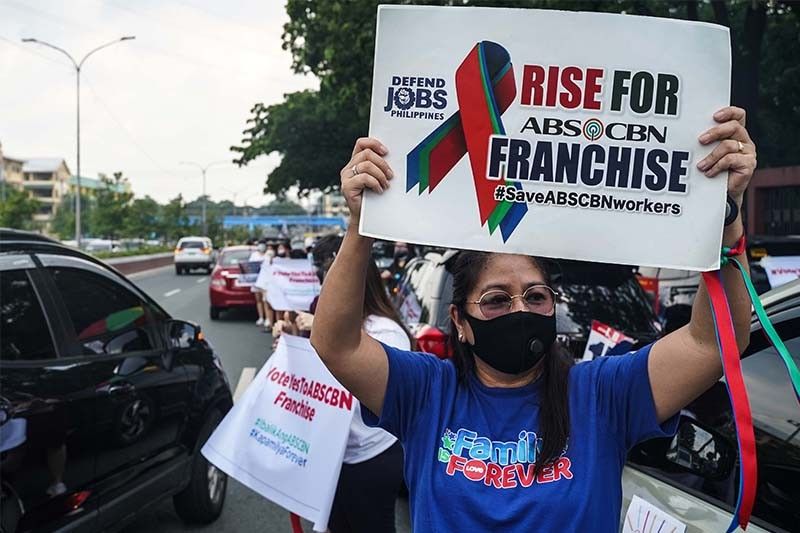
MANILA, Philippines — The vote of 70 Congressmen to adopt a recommendation rejecting the grant of a franchise for ABS-CBN killed their bid to return on air, and with no law to assail, it is unclear whether embattled media network can use to take its battle for a fresh franchise to courts.
“As there is no law or resolution that can be assailed or reviewed, [I’m] not sure what can be filed,” law professor Theodore Te told Philstar.com.
READ: House panel denies ABS-CBN franchise | List of lawmakers who voted for and against ABS-CBN franchise renewal
The grant of legislative franchises falls under the jurisdiction of Congress. The Center for Media Freedom and Responsibility said in 2016 that while commercial broadcasting corporations are businesses, “their continued operation to serve a public service and as government watchdogs is dependent on whoever occupies Congress and, ultimately, the Office of the President.”
And this would pose a huge challenge for ABS-CBN, CMFR said, that would have to bat for the renewal of its franchise under President Rodrigo Duterte that did not hide his disdain against the network that it accused of “biased reporting” against him.
“These congressional franchises are an additional weapon in its arsenal to control a free press,” CMFR then-wrote.
While Duterte softened his stance against the network on February, he publicly threatened the network in a speech in December 2019. He said: "Kung ako sa inyo ipagbili niyo na 'yan. Kasi ang mga Filipino ngayon lang makaganti sa inyong kalokohan (If I were you, I would sell it. It's only now that Filipinos would be able to get back at your wrongdoings). And I will make sure that you will remember this episode of our times forever."
ABS-CBN petition vs NTC order
When its last franchise expired on May 4—as the Congress sat on the bills calling for its renewal—the National Telecommunications Commission only waited for a day to slap the network with a Cease and Desist Order.
In compliance with the government order, ABS-CBN shut most of its operations, including its free channel 2, recording the second time in history that the media giant was forced to go off air. The first, was when the country was under Martial Law regime in September 1972.
By the end of the same week, ABS-CBN ran to the Supreme Court to ask for relief against the implementation of the NTC’s order. The network reiterated its plea for a temporary restraining order—operating on a theory that with this, they may be allowed to return on air—on May 18.
They told the court: “If this severe financial hemorrhage is not stopped, ABS-CBN may be constrained to eventually let go of workers, reduce salaries and benefits, and substantially cut down on costs and expenses.”
But the high court has yet to resolve their petition two months since their filing.
Peralta said June 11 that the member-in-charge of the petition “asked for July 13 for deliberation.” The chief justice also said then that they had just received comments from the House of Representatives and Senate.
Te said that with the Congress’ action on Friday, ABS-CBN’s petition may now be rendered moot, but it may still resolve the issues ABS-CBN raised.
“I wouldn’t want to pre-empt the Court but mootness is an option but there is always the exception of ‘capable of repetition evading review’ although quite remote,” he said.
Retired Associate Justice Arturo Brion, in his concurring and dissenting opinion on Province of North Cotabato vs the Government of the Republic of the Philippines, recalled the SC used the “capable of repetition but evading review” exception in an earlier case.
He referred to Sanlakas vs Executive Secretary petition in 2004. Brion noted that the SC applied the “capable of repetition but evading review” exception “to prevent similar questions from re-emerging.”
The SC also ruled on the petition, under the same exception, “to lay to rest the validity of the declaration of a state of rebellion in the exercise of the President’s calling our power, the mootness of the petitions notwithstanding.”
- Latest
- Trending






















